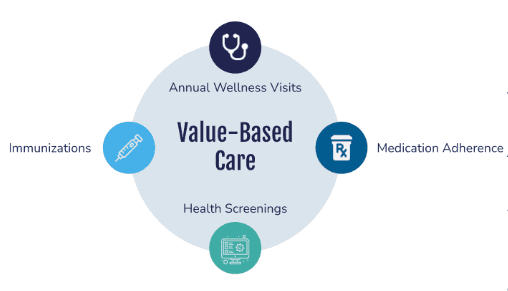Health Insurance Tips & Tricks
Guide to Senior Health Insurance Coverage

RateQuote Direct,

As individuals age, the importance of having comprehensive health insurance coverage becomes increasingly evident. For seniors, navigating the complex landscape of health insurance can be daunting, making it crucial to understand the options available and choose the best plan to suit their healthcare needs. This guide aims to provide valuable insights into senior health insurance coverage, including key information on Medicare, supplemental insurance, and important considerations for older adults.
Medicare for Seniors:
Medicare is a federal health insurance program primarily for individuals aged 65 and older, providing coverage for hospital visits (Part A) and medical services (Part B). Here are some key points to know about Medicare:
- Part A: Covers inpatient hospital stays, skilled nursing facility care, hospice care, and some forms of home health care.
- Part B: Covers doctor visits, outpatient care, preventive services, and medical supplies.
- Part C: Known as Medicare Advantage, these are plans offered by private insurance companies that combine Part A, Part B, and often prescription drug coverage.
- Part D: Prescription drug coverage can be added to Original Medicare through a standalone Part D plan or included in a Medicare Advantage plan.
Supplemental Insurance for Seniors:
Medicare does not cover all healthcare costs, which is why many seniors opt for supplemental insurance to fill the gaps. Here are common types of supplemental coverage:
- Medigap: Private insurance plans that cover costs not paid by Original Medicare, such as copayments, coinsurance, and deductibles.
- Long-Term Care Insurance: Provides coverage for assisted living, nursing home care, and other long-term care services not covered by Medicare.
- Dental and Vision Insurance: Supplementary plans that cover dental procedures, eye exams, and other services not included in Original Medicare.
Important Considerations for Senior Health Insurance:
When selecting a health insurance plan as a senior, it's essential to consider various factors to ensure adequate coverage and financial security. Here are some key considerations:
- Cost: Evaluate premiums, deductibles, copayments, and coinsurance to determine affordability.
- Coverage: Ensure the plan covers essential services such as doctor visits, prescriptions, and preventive care.
- Network: Check if your preferred healthcare providers accept the insurance plan to avoid out-of-network costs.
- Prescription Drug Coverage: Confirm that any medications you take are included in the plan's formulary.
- Healthcare Needs: Consider your current health status, anticipated medical needs, and any chronic conditions that may require specialized care.
By understanding the options available, comparing plans, and carefully assessing individual healthcare needs, seniors can make informed decisions when selecting health insurance coverage. It's essential to review and update insurance plans regularly to ensure they align with changing healthcare requirements and provide optimal coverage for overall well-being.
Remember, good health insurance coverage is a crucial aspect of maintaining health and financial stability in the senior years, offering peace of mind and access to quality healthcare when needed.





